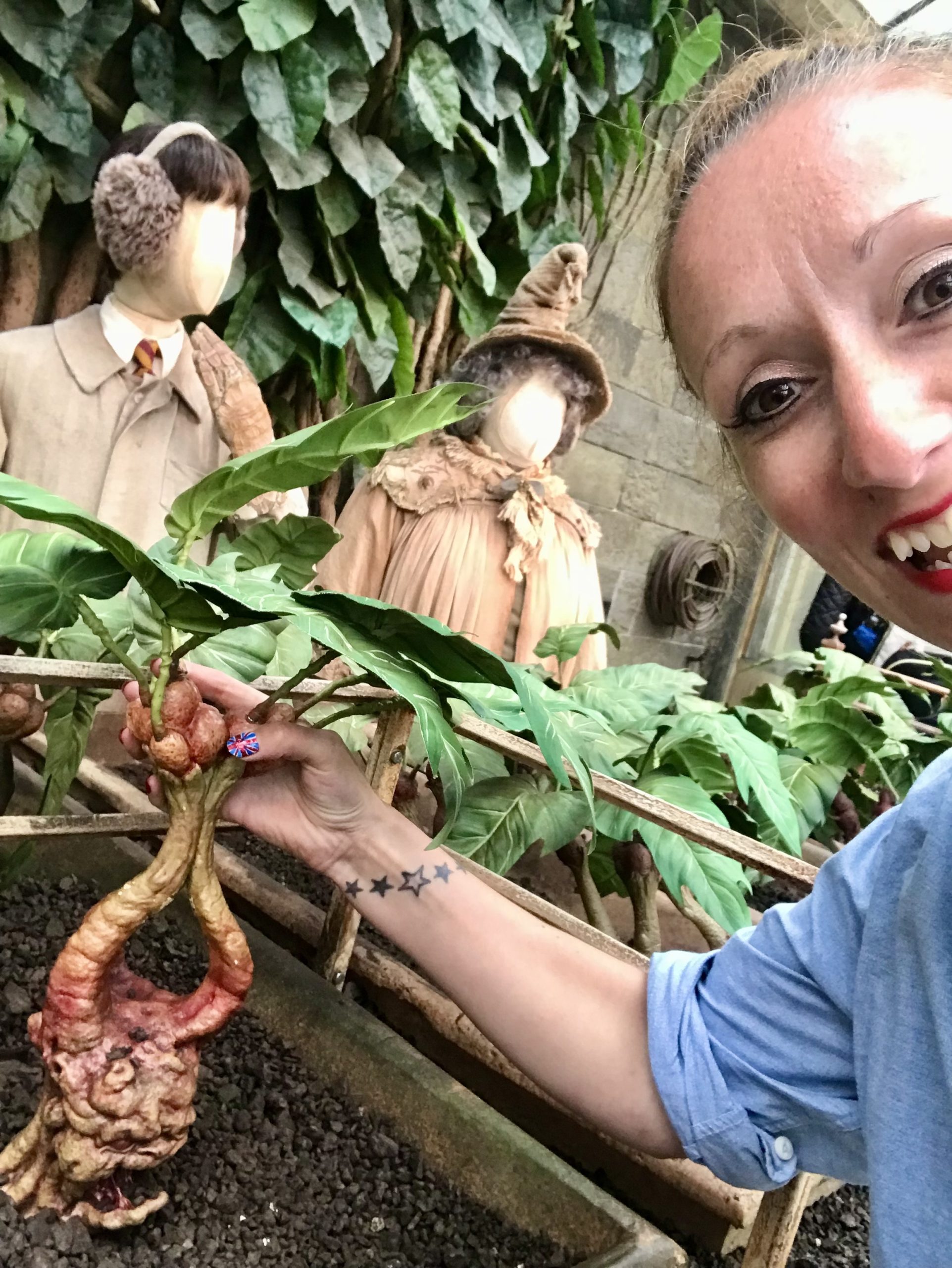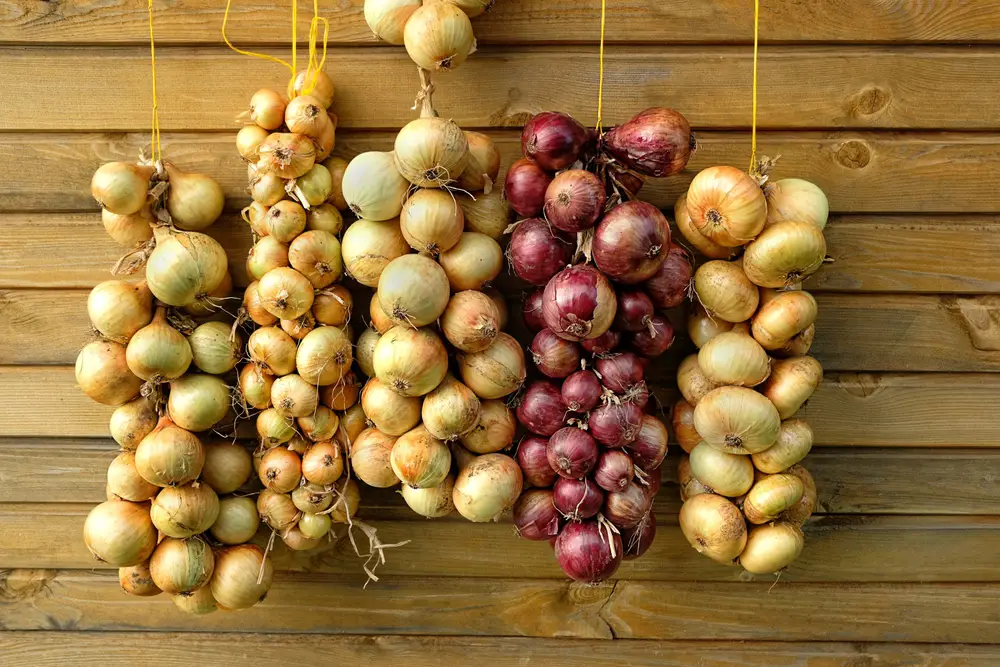Have you ever wondered “Is an onion a fruit or a vegetable?” Lots of people do!
But the wait is over: onions are vegetables!
So why the confusion?
The Onion: Fruit vs. Vegetable Conundrum
Sometimes people wonder if onions are a fruit rather than a vegetable because planting them produces more onions. But fruits contain seeds and onions don’t, so they are vegetables.
Also, culinary definitions are based on how foods taste and are used in cooking. Whereas botanical definitions focus on the plant’s structure and reproductive parts.
Let’s get into the botany of if an onion is a fruit or vegetable!
Onion Fruit vs. Vegetable: A Botanical Breakdown
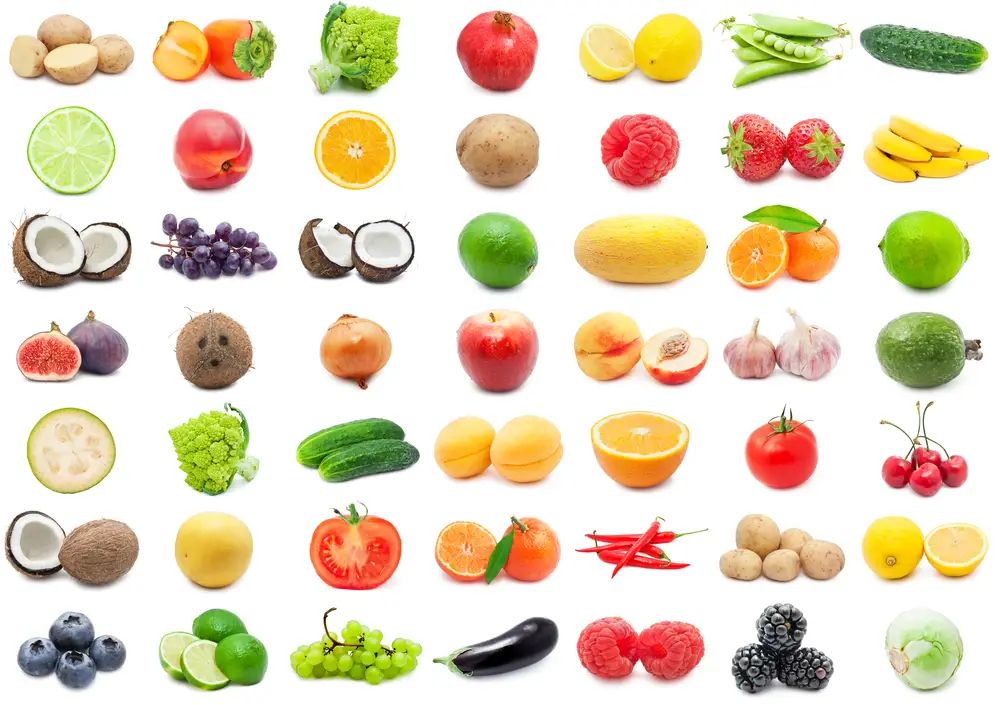
So what is the difference between fruits and vegetables? Here’s the science!
Fruit
The botanical classification of fruit refers to the mature ovary of a flowering plant, typically containing seeds, and includes any adjacent parts derived from the flower. Fruits are categorized into two types:
- Fleshy Fruits: develop from a juicy ovary, such as apples and berries
- Dry Fruits: develop from a dry ovary, like nuts and grains
Vegetables
In botanical terms, vegetables are the edible plant parts that do not involve the reproductive structures (like ovaries in fruit). They include:
- Roots (carrots)
- Stems (celery)
- Leaves (lettuce)
- Any other non-reproductive plant parts
So an onion is a vegetable because it is a bulb which is a non-reproductive part of the structure of a vegetable!
What Part Of The Onion Plant Do We Eat?
An onion is a bulb. This is the part that grows underground.
The role of a bulb is to store food while the plant is dormant. This means it has enough energy to come back to life when spring arrives!
How long an onion takes to grow is dependent on the type of onion.
Onion bulbs are protected by a papery skin which we remove before eating. We also remove the roots. If left to grow, some onions have flowers.
While no part of an onion is toxic, we tend to use the fleshy leaves of the bulb in cooking. These look like concentric rings when you slice them. Who doesn’t love an onion ring?!
Sometimes onions send up green sprouts, these are edible too!
Is It Okay To Eat Onion Seeds?
Yes, in fact, they are delicious!
Onion seeds are also called nigella seeds or kalonji. I always use onion seeds when I make naan bread!
For centuries onions and onion seeds have been known for their health benefits. Some of these include:
- Lowers cholesterol
- Stabilizes blood pressure
- Improves digestion
- Boosts bone health
So try using some in your bread or sprinkle some on soups or salads for an added healthy kick!
Onions: A Member Of The Allium Family
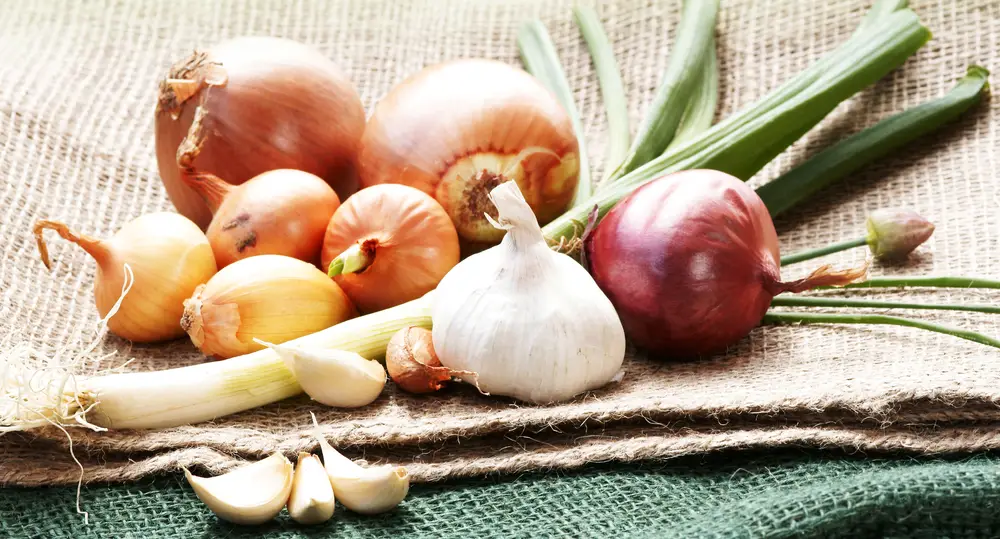
The Allium family (Alliaceae) is widely recognized for their distinctive flavors and culinary versatility. Aside from the onion, other common members of this family include:
- Garlic: Renowned for its pungent cloves used in cooking and traditional medicine
- Chives: Offer delicate onion-like flavor and are often used fresh as a garnish
- Leeks: mild, sweet taste that is versatile in soups and stews, or as a side dish
Onions (Allium cepa) are originally from Central Asia. They have been cultivated for thousands of years and are widely used in cooking all around the world.
Major cultivars of onions are:
- Common Onions: Yellows, White, and Red
- Spring Onions/Scallions: Early harvest onions
- Shallots: mild onions
- Pearl Onions: small onions
- Egyptian Onions/Walking Onions: self-propagating perennials
The Versatile Onion: A Culinary Workhorse
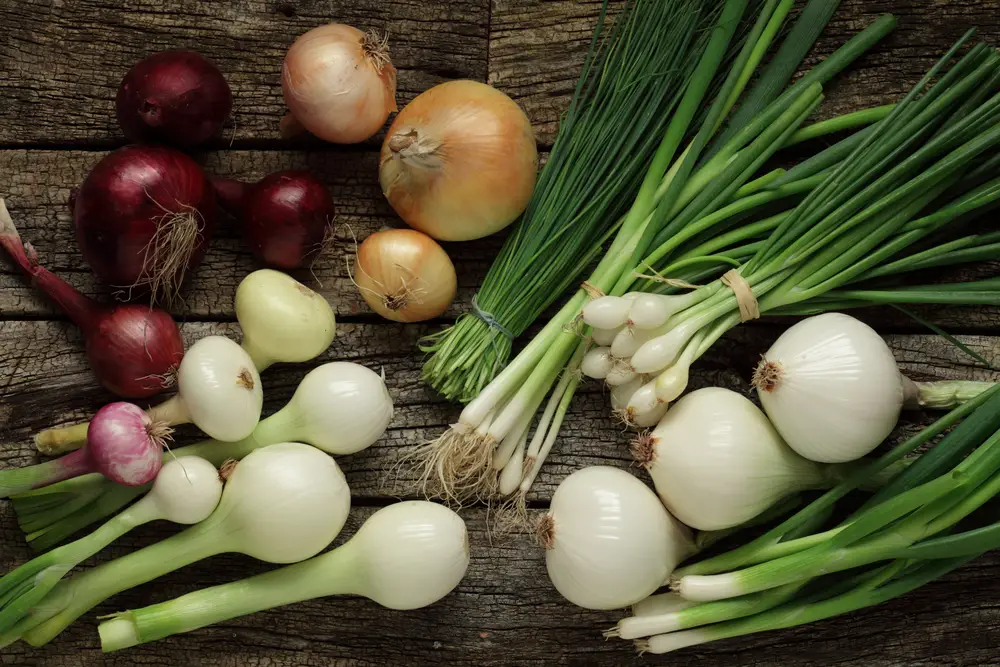
Across the world, onions hold value not only for their culinary versatility but also for their ability to enhance and balance other flavors.
There are three main types of onions for cooking:
Yellow Onions
These are the most common types of onion. They have a strong, pungent flavor. Yellow onions can be sautéed, caramelized, or used raw in salads and salsas. They add depth of flavor to soups, stews, and sauces.
Red Onions
These have a milder, slightly sweet flavor compared to yellow onions. Use them raw in salads, sandwiches, and as a garnish due to their attractive color and mild flavor. You can also also pickle red onions.
White Onions
White onions have a sharper flavor. They are common in dishes like salsas, salads, and stir-fries.
Onions: A Global Superstar
Whether you eat them raw, sauteed, or caramelized, onions are a staple ingredient in kitchens all around the world.
In French cooking, onions are a fundamental component of mirepoix, a flavor base that also includes carrots and celery.
Onions are integral to Indian curries. When cooked with spices and other aromatics to create flavorful bases known as masalas.
Onions provide a rich, aromatic backdrop used in both vegetarian and meat-based dishes.
Unlocking The Nutritional Power Of Onions
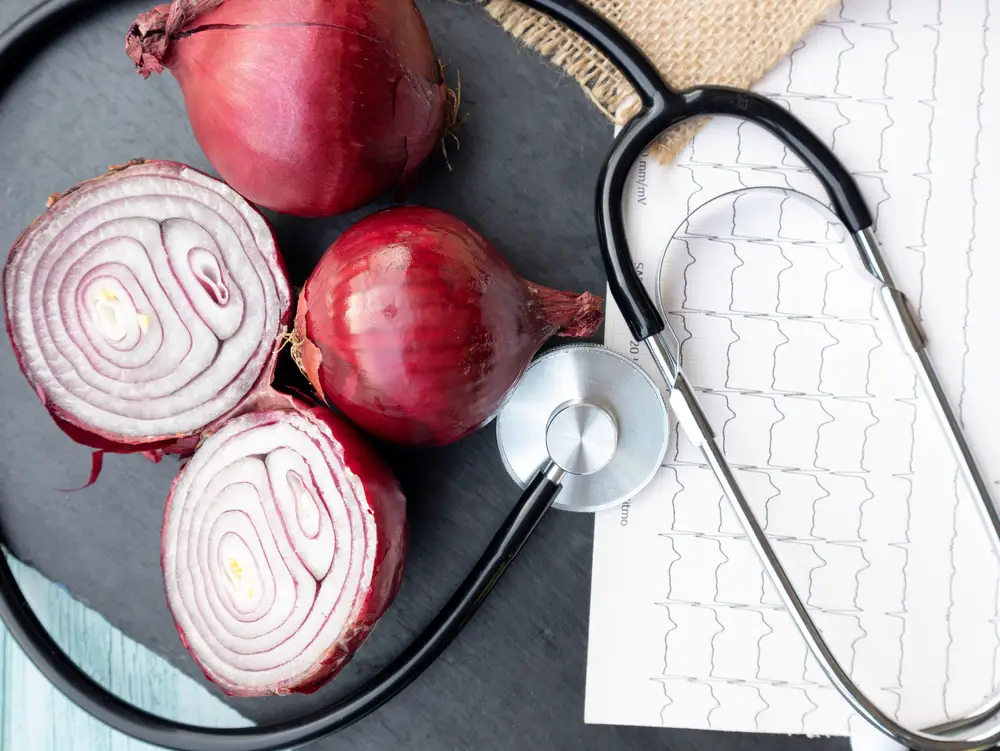
Onions are relatively low in calories but packed with essential vitamins and minerals that contribute to overall health. They support your:
- Immune System
- Heart Health
- Digestive Health
Let’s look at what’s inside these pungent powerhouses:
- Vitamin C: Important for immune function, skin health, and antioxidant defense
- Vitamin B6: Plays a role in metabolism, brain development, and immune function.
- Folate (Vitamin B9): Important for cell division and the formation of DNA, folate is particularly important during pregnancy
- Potassium: An essential mineral for regulating blood pressure and fluid balance in the body.
- Manganese: Necessary for metabolism, bone health, and antioxidant function.
Onions are rich in antioxidants, like quercetin and flavonoids, which help neutralize free radicals in the body. Onions have anti-inflammatory effects that can benefit conditions like arthritis and other inflammatory disorders.
Fun Facts About Onions: Beyond The Tears
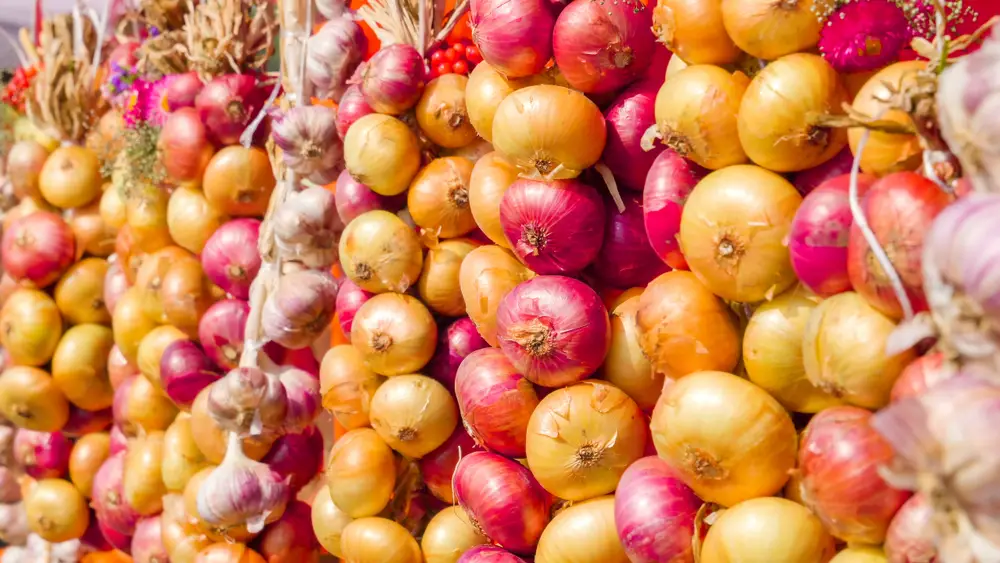
Guinness Book Of World Records’ Heaviest Onion
The biggest onion ever grown in the world weighed a whopping 19 pounds and 12.4 ounces (8.97 kilograms)! That’s enough to make you cry! It was grown by Gareth Griffin in 2023 in the United Kingdom.
Ancient Egypt
The concentric layers of onions were a symbol of eternal life to Ancient Egyptians.
They held such a high significance that they were placed in the tombs of pharaohs and even inside the mummies themselves!
Ancient Egyptians believed the onion’s strong smell could revive the dead as they traveled to the next life.
Papery Money?
The Ancient Egyptians actually used onions as currency to pay workers building the pyramids!
The use of onions as money also continued into the Middle Ages!
Bug Bite Balm
Onions have antibacterial and antifungal qualities. The juices of an onion calm and soothe bug bites.
So next bug season, make sure you grab an onion as a quick and inexpensive home remedy for bug bites!
Tear-Inducing Chemistry
Cutting onions releases sulfur compounds that react with tears to form a mild sulfuric acid. This irritant makes eyes water as a defense mechanism to flush out the irritant.
Don’t Cry For Me
Ever wondered how to stop onions from making you cry? Here are some ways:
- Chill the onion before cutting
- Cut it under running water
And some more unconventional ways:
- Light a candle while cutting
- Chew gum
- Have a piece of wet paper towel next to where you are chopping
- Place a small piece of bread in your mouth while cutting
Oh La La
Onions have long held the reputation of being a powerful aphrodisiac.
They are referenced in the love lore of Egyptian, Greek, French, and Hindu cultures.
So think about serving French Onion soup on your next date night!
Mass Production
Onions are one of the most widely cultivated vegetables globally. China is the largest producer, followed by India, and the United States.
